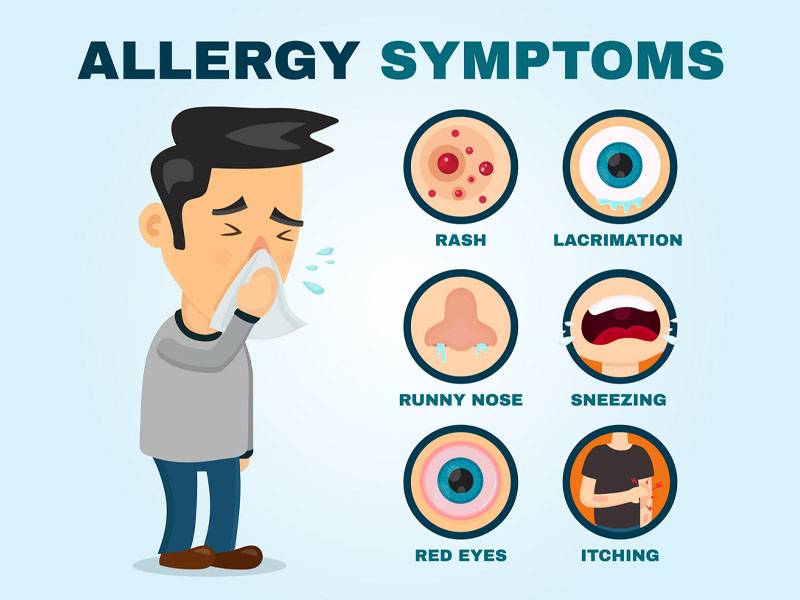

Decoding Allergies: When Your Body Says No to Something Harmless
Have you ever enjoyed a picnic in the park only to end up with a runny nose and itchy eyes? Or perhaps a delicious bite of cake triggers a wave of nausea? These are classic signs of allergies, a surprisingly common condition that disrupts millions of lives worldwide. But what exactly is an allergy, and why does it happen?
Immune System Mishap:
Our bodies are equipped with a remarkable defense system, the immune system. It acts like a vigilant guard.
constantly on the lookout for harmful invaders like viruses and bacteria. However, in allergies, this system malfunctions. It mistakenly identifies a harmless substance, called an allergen, as a threat. This triggers an inflammatory response, leading to the uncomfortable symptoms we associate with allergies.